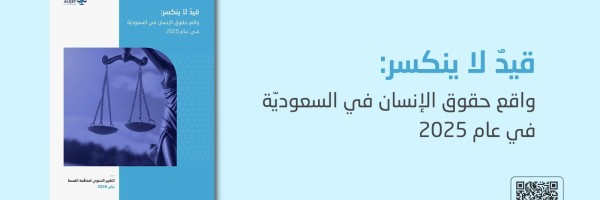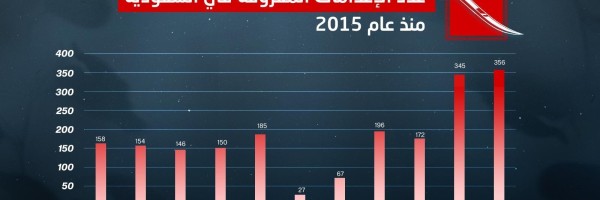ALQST has carried out a survey on the demolition of homes and eviction of residents in the historic port city of Jeddah and other areas of Saudi Arabia. Since the end of 2021 and early 2022, the Saudi authorities have evicted large numbers of people from their homes, in many cases without prior warning.
The authorities say, without providing evidence, that the purpose of the demolitions is to allow the redevelopment of run-down urban areas plagued by crime and lawlessness and to improve the quality of life for citizens. Our survey, however, paints a different picture.
A sample of those who suffered forced eviction and the demolition of their homes responded to a questionnaire from ALQST that looked at the process, legality and consequences of the demolition operation. The confidential questionnaire covered issues such as compensation, whether alternative accommodation was provided, type of property ownership, family size, employment and monthly income, with the aim of seeking the views of those affected without putting them at risk of arrest or harassment by the authorities.
Land confiscation and forcible displacement are longstanding practices of the Saudi authorities, particularly the illegal seizure of land and real estate in areas the authorities have earmarked for development. The most notorious recent example of this was the brutal displacement of thousands of members of the Huwaitat tribe in 2020 from an area near the Red Sea in order for the Neom megacity project to go ahead.
It is worth noting here that Saudi Arabia has not yet signed up to the International Covenant on Economic, Social and Cultural Rights, under which member states are bound to recognise the right of everyone to adequate housing.
More than 91% of the respondents to our survey had had either residential or commercial properties demolished. Eighty percent said the properties were owner-occupied, while 20% were landlords or tenants. Their families ranged in size from two members to 24, with an average of 8.12 members per family. 97.1% of the participants said they lived in Jeddah.
The length of time respondents had lived in their properties ranged from one year to 60 years. 75.8% of participants said their properties had been demolished; 12.1% said they had not.
Not all of those surveyed were able to produce proof of ownership of their properties. 85.7% said they possessed a document proving their ownership, but the remaining 14.3% talked about the difficult of dealing with the administrative issues involved, and how little interest the authorities had shown in producing, or issuing copies, for them of title deeds or equivalent documents. These people’s claims to have had documents proving they owned their homes contradict the authorities’ claims that the residents of the demolished houses had no proof of ownership.
Sixty percent of participants said they received notification in advance of the demolition, though some said the time between notification and demolition had been extremely short. Meanwhile, 37.1% said they had not received any notification at all. Others said they were driven out of their homes when the electricity and water were cut off. Indeed, 54.3% of those surveyed said they were forced out with the threat of being sent to prison if the eviction order was not carried out. These accounts, too, conflict with the authorities’ narrative, which said that all the residents were given advance notice of the demolition.
62.9% said the authorities had not given them clear information about the procedure for submitting claims for compensation for the demolition of their properties, nor helped them to obtain alternative accommodation. Meanwhile, 71.4% said they had not been told financial compensation was available, and they had not been given any other money. The small proportion of survey participants who said they had been provided with alternative accommodation said they had been housed in a two-bedroom flat shared with another family. 58.1% also said they had been unable to find alternative schools for their children in the areas they had moved to, and those who had done so – only 25.8% – said they were in remote areas beyond the reach of public services.
Some of those who had been forced out of their homes said they had gone a whole month without finding alternative accommodation, and that rents had shot up to unaffordable levels. Others said they had found alternative housing that was very expensive and they had had to pay their own deposit on the rent, after the authorities broke their promise to pay them compensation on the grounds that they earned high salaries that would cover their outgoings.
This repeated pattern of forcible evictions and associated violations and lack of transparency, including the use of armed force in the case of the demolition of the historic Al-Musawwara district in Awamiya in the Eastern Province in 2017, and the displacement of members of the Huwaitat tribe from areas earmarked for the Neom megacity project in 2020, shows a consistent and systematic approach by the authorities in their dealings with homeowners that fails to respect their rights to housing and provides no means of obtaining justice for those who submit complaints.
ALQST therefore calls on the Saudi authorities to respect people’s rights to adequate housing; to carry out a prompt and transparent inquiry into the mass evictions that have taken place; to provide mechanisms whereby those who have suffered violations can obtain justice; to address evicted residents’ immediate needs for accommodation and for education and health services; to hold public consultations on all current and future development plans, to ensure that the rights, needs and interests of all stakeholders are met; and to ratify the International Covenant on Economic, Social and Cultural Rights and ensure that Saudi laws and regulations comply with it.




